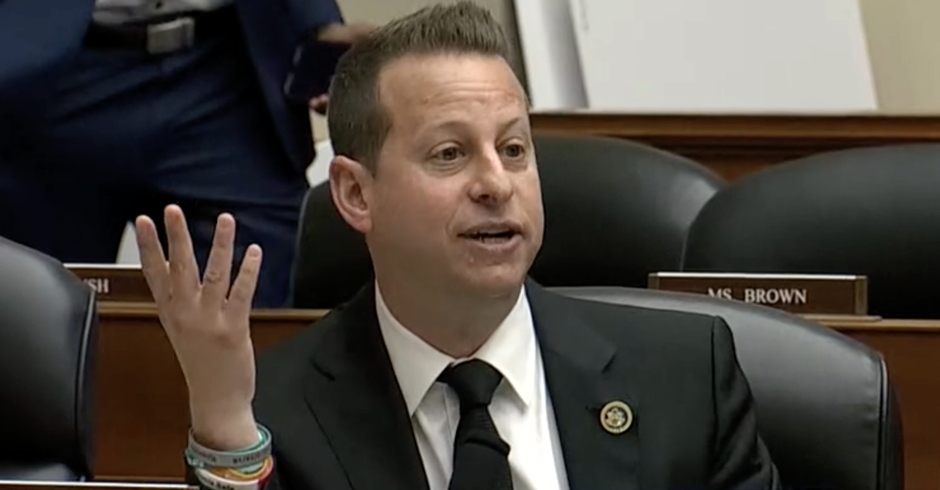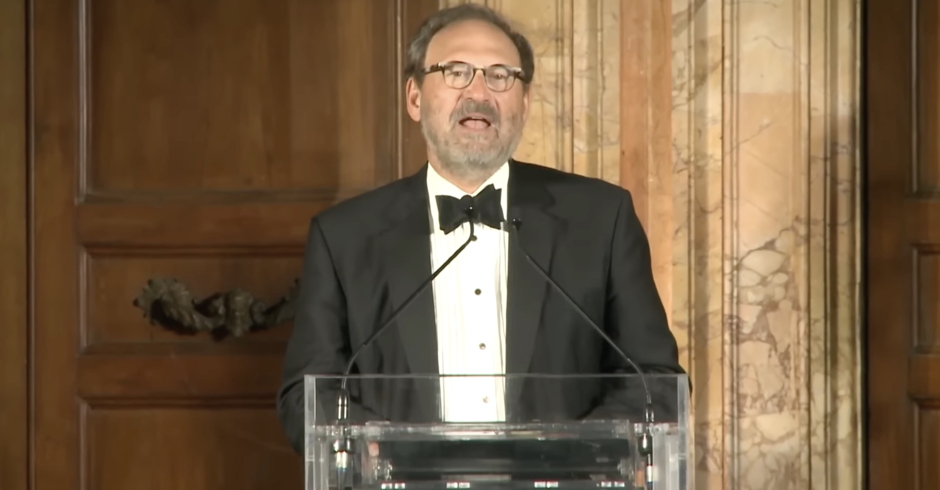“Loved ones of gay and lesbian family members are forced to serve in silence, too.”
Leading up to Congressional debate on “Don’t Ask, Don’t Tell” earlier this year, SLDN organized “Stories from the Frontlines: Letters to President Barack Obama,†a new media campaign launched to underscore the urgent need for congressional action and presidential leadership at this critical point in the fight to repeal “Don’t Ask, Don’t Tell†(DADT.)
This week SLDN is continuing these letters, but with different recipients. We’ll be sharing them with you every morning this week.
With the Pentagon’s family survey now in the field, Servicemembers Legal Defense Network (SLDN), a national, legal services and policy organization dedicated to ending “Don’t Ask, Don’t Tell” (DADT), will release a letter each day this week from family members and spouses of former service members impacted by DADT. As the Pentagon reaches out to 150,000 straight couples on how their lives are impacted, these letters will share the perspective of those forced to serve under this law alongside their loved ones. SLDN is urging supporters of repeal to call, write, and schedule in-district meetings with both their senators as the defense budget, which contains the repeal amendment, moves to the floor just weeks from now: www.sldn.org/action.
General Carter F. Ham
Commanding General, U.S. Army Europe
Co-Chair, Comprehensive Review Working Group
Hon. Jeh C. Johnson
General Counsel, U.S. Department of Defense
Co-Chair, Comprehensive Review Working Group
CC:
U.S. Sen. Carl M. Levin
Chairman, Senate Armed Services Committee
U.S. Sen. John S. McCain
Ranking Member, Senate Armed Services Committee
U.S. Sen. Joseph I. Lieberman
Member, Senate Armed Services Committee
Dear General Ham and Mr. Johnson:
In 1990 – while working as a reference librarian at the Library of Congress — I met Joan Darrah, an active duty Naval Officer. I already knew about “Don’t Ask, Don’t Tell,†but I soon woke up to the harsh reality that loved ones of gay and lesbian family members are forced to serve in silence, too.
Over the years, Joan had adjusted to living two lives — in the closet at work and out after hours. For me, it was a bit of an adjustment as I had been fortunate to work for an employer who valued my skills and expertise and realized that my being a lesbian in no way detracted from my ability to do a great job.
I knew that Joan could be deployed at any moment. She may be away from home for two or three years. I realized that being with an active duty military officer was even more constricting than I could have possibly imagined and I worried constantly about Joan’s well being. Yet, through it all, I knew our relationship was worth the compromises. I knew we had to make it work for Joan to continue to serve our Country.
There were so many things that we had to be careful about. For example, Joan had asked that I not call her at work unless it was truly an emergency. When we were out in public if Joan saw someone from work, I learned to “disappear,†until Joan’s co-worker moved on. We didn’t dare go to nice restaurants on Valentine’s Day or even Saturday nights. We could not show any familiarity while out in public. I went to parties at colleagues’ homes alone lest a guest I didn’t know learn that Joan was in the Navy.
The events of September 11, 2001, caused us both appreciate more fully the true impact of DADT on our lives and the reality of our mutual sacrifices. At 8:30 a.m. that morning, Joan went to a meeting in the Pentagon. At 9:30 a.m., she left that meeting. At 9:37 a.m., the plane flew into the Pentagon and destroyed the exact space that Joan had left less than eight minutes earlier, killing seven of her colleagues.
In the days and weeks that followed, Joan went to several funerals and memorial services for her co-workers who had been killed. Most people attended these services with their spouses whose support was critical at this difficult time, yet Joan was forced to go alone, even though I really wanted to be with her to provide support.
As the numbness began to wear off, it hit me how incredibly alone I would have been had Joan been killed. The military is known for how it pulls together and helps people; we talk of the “military family,” which is a way of saying we always look after each other, especially in times of need. But, none of that support would have been available for me, because under DADT, I didn’t exist.
In fact, I would have been one of the last people to know had Joan been killed, because nowhere in her paperwork or emergency contact information had Joan dared to list my name.
Whenever I hear Joan recount the events of that day, I relive it and realize all over again how devastated I would have been had she been killed. I also think of the partners of service members injured or killed in Iraq and Afghanistan. They are unable to get any support from the military and they must be careful about the amount of support they offer to their closeted service member loved ones.
The events of September 11th caused us to stop and reassess exactly what was most important in our lives. During that process, we realized that this discriminatory law was causing us to make a much bigger sacrifice than either of us had ever admitted.
Eight months later, in June 2002, Joan retired from the U.S. Navy, and I retired from the Library of Congress. If it wasn’t for DADT, we might both still be serving in our respective positions.
Lynne Kennedy

Enjoy this piece?
… then let us make a small request. The New Civil Rights Movement depends on readers like you to meet our ongoing expenses and continue producing quality progressive journalism. Three Silicon Valley giants consume 70 percent of all online advertising dollars, so we need your help to continue doing what we do.
NCRM is independent. You won’t find mainstream media bias here. From unflinching coverage of religious extremism, to spotlighting efforts to roll back our rights, NCRM continues to speak truth to power. America needs independent voices like NCRM to be sure no one is forgotten.
Every reader contribution, whatever the amount, makes a tremendous difference. Help ensure NCRM remains independent long into the future. Support progressive journalism with a one-time contribution to NCRM, or click here to become a subscriber. Thank you. Click here to donate by check.
 |






















